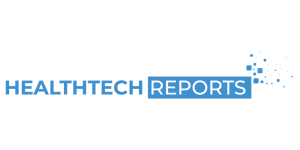Reveal HealthTech has raised $7.2 million in Series A funding, led by Leo Capital with participation from Sanos Capital. The US-focused company, founded in 2023 and incubated by W Health Ventures and 2070 Health, specializes in building safe, clinically relevant AI systems for healthcare and life sciences organizations.
Why this matters now
AI is moving from pilots to production in healthcare, reshaping diagnostics, care delivery, and operations. Reveal HealthTech positions itself as a catalyst for this shift by pairing clinical expertise with engineering depth to deliver measurable value for providers, payers, pharma, and med-tech firms.
What the new capital will scale
Reveal plans to expand its solutions portfolio and go-to-market reach, with emphasis on two flagship offerings:
- BioCanvas® – enables multimodal AI use cases such as faster clinical trial recruitment, helping sponsors find eligible participants more efficiently.
- Prism AI® – accelerates the development of intelligent agents for workflow automation, reducing administrative burden and unlocking operational gains across care settings.
Early traction and real-world impact
Reveal reports a recent deployment with a $40B US medical-device leader to boost patient adherence through AI-driven data integration, creating a reusable blueprint for similar enterprises.
In addition, Essen Health Care highlights how real-time data use with Reveal is improving patient experience and easing clinician workload, underscoring the company’s focus on safety, empathy, and personalization in AI.
Who’s backing the bet?
Lead investor Leo Capital cites Reveal’s ability to deliver tailored, time-bound business outcomes as a key differentiator. W Health Ventures, an early backer and incubator through 2070 Health, emphasizes the need for nuanced, non one-size-fits-all solutions as US healthcare rapidly adopts AI.
Strategic momentum
Alongside the funding, Reveal has joined the Cipher Collective, an ECG-powered AI partner network, to integrate best-in-class health technology capabilities and speed transformation for health systems.
What healthcare leaders should watch
If you’re evaluating AI programs in 2025, look for:
- Clinically grounded use cases (e.g., trial recruitment, adherence, care coordination) that map to P&L impact.
- Human-in-the-loop design and auditable models to maintain trust and regulatory readiness.
- Composable AI agents that integrate with existing EHRs, CRMs, and data lakes to avoid vendor lock-in.
- Proven enterprise rollouts and referenceable outcomes, not just PoCs.
(These are areas Reveal says it is building toward with BioCanvas and Prism AI.)











